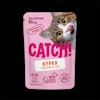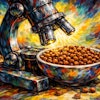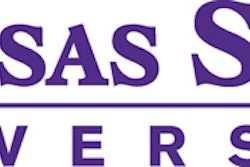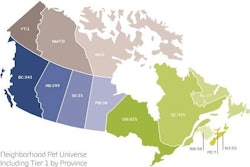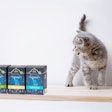
Petfood professionals from Europe and around the world can learn the latest pet food data and information during Petfood Forum Europe 2015, June 10 at the Koelnmesse in Cologne, Germany. This exclusive conference also offers prime networking and the chance to connect with leading industry suppliers exhibiting at Victam International/FIAAP/GRAPAS (www.victam.com).
Despite economic challenges in some Western European countries, pet care and pet food are still strong segments in the region, which accounts for about 30% of the total US$98.3 billion pet care market, according to Euromonitor International. Eastern Europe, at about 6% of the global market, is growing quickly, though setbacks in the largest market, Russia, are having an impact.
Petfood Forum Europe features industry experts presenting new research on pet food ingredients, palatability, packaging, safety and production. Following are the schedule, topics and speakers as of press time. For updates and registration information, visit www.petfoodforumevents.com.
Wednesday, June 10, 2015
9:00-10:00 Registration/check-in with light breakfast
10:00-10:40 Differentiation on the shelf: pet food packaging design that captures market share—Stefan Hartung, Executive Creative Director for Ideas That Kick, explains how to create pet food packaging design concepts that differentiate your brand in a crowded, competitive market. Using international examples, he describes how to analyze competitive shelf sets for pet food-specific packaging, identify market and mindset opportunities and speak to consumers with benefit messaging.
Born and raised in Hildesheim, Germany, Hartung studied visual communication there as well as in the US. In 2001, he co-founded Minneapolis design agency Kick, which has applied its thinking to brands such as Blackwood Pet Food, Cargill Pet Treats, Oxbow Animal Health, Johnson & Johnson, PepsiCo and Mom Brands breakfast cereals. Hartung coordinates Kick’s DExI (Design Exchange International) program and serves on the advisory board of his US alma mater, University of Wisconsin Stout.
10:40-11:20 Insect protein meal: a safe, sustainably produced source of nutrients for innovative pet food applications—Tarique Arsiwalla, Founder and Director of Protix Biosystems BV, provides insights into how insects can play a pivotal role in food chains, turning end-of-life streams into valuable high-grade nutrients that can benefit the pet food industry while complying with strict guidelines in European Union legislation. Within those guidelines, ingredients have been produced with various functional applications, including dog food.
At Protix, which he co-founded in 2009, Arsiwalla heads product development, sales, regulatory affairs and finance/investors. He started his career at ING Group, where he worked in structured finance and later acquisition finance. Arsiwalla also served as a project leader for McKinsey and Co. He holds a master of science in mechanical engineering from Delft University in the Netherlands.
11:20-12:00 Measuring emotional palatability—Christelle Tobie, Panelis Business Development Manager for Diana Pet Food, explains why palatability, defined to date as an organoleptic concept, has now become emotional as the pet food market faces new challenges: understanding pets’ behaviors related to their feeding experience and understanding the “parents’” perceptions of their pets’ feeding satisfaction. Tobie and her colleagues have investigated this new dimension to define the relevant criteria to measure emotional palatability.
Tobie joined Diana Pet Food in 1993 as part of the European sales team, focusing on Northern European markets. When Panelis was created in 2000, she took charge of growing the new function. Tobie coordinates strategic projects, international development and recommends new panel testing methodologies implementation. Today, she is the official Panelis spokeswoman, in charge of promoting the importance of reliable and expert palatability measurement.
12:00-13:30 Lunch
13:30-14:10 Ensuring safe pet food in the 21st century: protecting your brand equity, your customers and our pets—David Primrose, MSc, Technical Consultant for Synergy Food Ingredients, delivers insights into how brand equity shapes our thinking on pet food safety and illustrates the importance of evolving our food safety management approach to ensure field-to-bowl protection now and in the future. Recognizing food safety culture as an emerging risk factor, he introduces a model for pet food safety built on food industry best practices and learnings from significant food safety incidents.
A professional food technologist, Primrose’s expertise is built on a master of science in food safety management from the University of Central Lancaster, UK, and over 35 years of pet food industry experience, including with Mars Petcare and his consultancy business, Synergy Food Ingredients Ltd. Primrose combines his passion for food safety and his studies for a PhD in food safety culture with delivering technical consultancy.
14:10-14:50 Seasonal rhythms in food intake, body weight and activity in the domestic cat—David G. Thomas, PhD, Senior Lecturer at Massey University, describes new research into how cats still show a strong seasonal rhythm in food intake, despite domestication and the provision by owners of a consistent food supply. Most domestic cats are exposed to natural daylight and temperature changes during the year, yet little research to date has looked at the consequence of this on appetite and food intake, body weight and activity.
Thomas obtained a bachelor of science honors degree in zoology from Dundee University and a doctorate from University College London. In 1995, he moved to New Zealand for a post-doctoral fellowship, eventually joining the teaching staff at Massey University. Thomas was later appointed Director of the Centre for Feline Nutrition, responsible for overseeing commercial and applied nutritional research. Currently, he lectures on companion animal nutrition at the Institute of Veterinary, Animal and Biomedical Sciences at Massey University.
14:50-15:30 Effects of caprylocapric triglyceride supplementation in cats—Melinda Fernyhough Culver, DVM, PhD, Scientific Affairs Manager-Biosciences for Abitec Corp., reports the results of a study on supplementing cats’ diets with caprylocapric (medium chain) triglycerides, a unique type of fat due to their digestion, absorption and metabolic pathway. A considerable amount of data suggest that supplementing human and other species’ diets with these triglycerides can diminish fat; yet there has been little focus on pets despite the progression of pet obesity to epic levels worldwide.
Culver possesses doctoral degrees in veterinary medicine and animal sciences from Washington State University and has authored or co-authored over 35 publications. She practiced as a small animal veterinarian before joining a consumer product goods company, working in research and product development. Her current research interest is the dietary requirements of animals in all stages of development, growth and aging.
15:30-16:00 Coffee break
16:00-16:40 Thermal versus mechanical energy in pet food extrusion to boost meat levels and save energy—Brian Streit, Director of Pet Food & Aquatic Technology for Wenger Manufacturing, explains how the continual rise in energy costs and the trend to include higher levels of fresh and dried meat in pet food formulations have combined to provide a new way of extrusion cooking: using higher levels of thermal over mechanical energy. This method offers many benefits in energy reduction, formulation flexibility, palatability, digestibility and more.
Streit joined Wenger in 2012 and focuses on process and technology development for the pet food and aquatic industries as well as process auditing and client technical support. Previously, he served as vice president of manufacturing for a major pet food manufacturer. A Kansas State University Milling Science & Management bachelor of science graduate, he has spent nearly 20 years in plant manufacturing operations, engineering, quality control, R&D and management in the pet food and flour milling industries.
16:40-17:20 Benefits of feeding algae as an antioxidant and omega-3 ingredient for dogs—Terry McArdle, European Pet Manager of the Alltech European Biosciences Centre, presents information and research on microalgae as a source of protein, fat and nutrients and a viable option to the challenge posed by food production growing slower than human demand. Studies suggest that supplementing canine diets with DHA from marine sources can improve cognitive, memory, psychomotor, immunologic and retinal functions in growing dogs and help reduce aggressive behavior in adult dogs.
McArdle joined Alltech in 2005 as a technical sales manager in the UK, moving to his current role in 2012. Previously, he owned a retail pet and aquatic centre and ran the aquatic department in a large garden center. He also served as pig product manager with Devenish Nutrition. McArdle graduated from Usk Agricultural College in South Wales, UK.

Petfood Forum Europe 2015 takes place on June 10 at the Koelnmesse in Cologne, Germany, in conjunction with Victam International/FIAAP/GRAPAS.
More about Petfood Forum Europe online
Visit www.petfoodforumevents.com to register and get conference updates.
Exclusive European pet food market data
Visit www.petfoodindustry.com/pet-food-market-data and click on Global.
